High-speed Trains in the USA?
No, this is not an April Fool's Day joke. It can be done. It's a future to dream of, and work for.
I had to wait till today to send this letter because if I’d sent it yesterday everyone would have thought “US high-speed trains” was one of my crazier April Fool’s jokes. (And I have to apologize: no April Fool’s this year. Real life in 2021 has been hard to believe, and I just couldn’t come up with a story ridiculous enough to fool you. I’m a little nervous, too: the one about moving my company to Seattle just won’t die.)
Our new president has long been known as “Joe Amtrak” because he commuted by train throughout his years as a US senator. In fact, he wanted to take the train to his inauguration on 6 January, but wasn’t able to do so because of security concerns. On Wednesday, he announced his American Jobs Plan, which is the long-awaited infrastructure bill that is intended to put people to work and create the foundation for a 21st-century economy. This is a good summary.
It was readers of my Berkshire Publishing newsletter in August 2011 who unwittingly turned me into the “train lady.”
I told a story about taking the train from Shanghai to Hangzhou, and how I came back to New York thinking about what it would mean to have modern, fast service to the Berkshire Hills of western Massachusetts.
People wrote from all over the world to tell me embarrassed they were, if they were US citizens, by the disgrace of US public transit. Non-Americans wrote to say they didn’t understand why the US, the richest country in the world, put up with shabby trains, or no trains at all.
All these correspondents could visualize excellent train service, whether it was Japanese or Swiss or Spanish or even British.
But I never imagined that this would become my lane, my soapbox. After all, I never set foot on a train until I was 19, in England. But soon after that first letter, I walked into a local cafe and the owner said, “So, you’re going to bring back the trains!”
So I did what any budding activist would do: I started an online petition, registered a website, and got t-shirts printed. I dragged my staff out on a snowy morning for a photo shoot on the train trains down the street - you need those visuals for social media, don’t you?
After living in England during my twenties, I had come to take trains for granted as a way, a good way, to get around, whether I was crossing London or going to Scotland. I stayed in the Berkshires of Massachusetts after the love affair that had brought me back to the States ended because it gave me a life a bit like the one I’d planned in England: living some hours from London, but near enough to make a day trip to meet editors or shop or do business. The line to New York was a shabby little commuter line then, and it’s a shabby little commuter line today, terminating in what I usually describe as the middle of a cornfield. But it was a lifeline.
But I had something more in mind than a shabby little commuter line. I wanted it to be easy for people to travel between New York and the many lovely small towns that were served until 1971 by the “Berkshire” or Housatonic Line. Author Simon Winchester helped tell that story in one of the videos on the Train Campaign’s YouTube channel.
Trains are special because at their best they provide a seamless travel experience, or as close to seamless as this world offers. Efficient ticketing, well-planned transfers, and good signage make it possible to move around a country even when you don’t know the language. Train service opens up the world.
And they provide an unbeatable connection between cities and between cities and rural regions.
China has figured this out. Just as they leapfrogged to mobile phones, they saw that high-speed trains provide better mobility than airplanes or cars. My Chinese friends don’t have the American attitude that trains are old-fashioned. Quite the contrary. I once flew from Beijing to Guangzhou and arrived four hours late for a dinner. My hosts were waiting for me in a private room, weary and bored and hungry. One leaned close and said, “Why didn’t you take the train?”
Beijing to Guangzhou is about 1300 miles, 1900km, the longest route in the world according to this video.
Don’t be too alarmed about whether we can catch up. The maps are spectacular but the video omits a lot, and makes everything look cleaner and greener than it really is. This could be fruitful US-China competition.
Congressman Seth Moulton, whom we interviewed on the Train Time podcast recently, makes an important point: the majority of Americans don't know what it is like to ride a train. Our smaller train routes were dismantled in the 1950s and 1960s, and finally closed in the early 1970s (watch The Last Train to Pittsfield). Many parts of the country have no train service at all. More than half of today's US citizens do not have a passport so they have never had a chance to ride the trains in other countries. As Rep. Moulton says, when we have new train services running, Americans will see for themselves how great it is to take the train.
We have many freight trains in the US, which is a good thing. By law, they are supposed to give priority to passenger trains. In reality, they do not, and the law set no penalty for the endless delays they cause to passenger service. President Biden’s plan actually addresses this issue. A headline read, “Biden To Make Amtrak Trains Run On Time.”
The US government system has some odd features, as you’ll have gathered, but there’s one that redounds to our benefit here in the far west of Massachusetts: our congressman, Richard Neal, is one of the most influential people in Washington as chair of the Committee on Ways and Means. Here’s the press conference that Neal hosted at Union Station yesterday.
Our new Secretary of Transportation, the former mayor who became the surprise star of the Democratic presidential race, Pete Buttigieg (boot-edge-edge), has made the dusty DOT the cool place to be in Washington.
Rail is key to transportation equity and climate resilience. The US is gradually stepping up to these challenges, but I can’t resist sharing a line from the director of the New England Convenience Store and Energy Marketers Association, which represents fuel distributors and gas stations:
We recognize that mobility is changing. Gas and diesel are out of favor for now. But we also recognize that it’s going to be with us for quite some time.
He may be surprised by just how how long “some time” is.
Train Time podcast and YouTube channel
The Berkshire Eagle just ran an article about the podcast I host: “'Train Time': Podcast makes the case for rail in the 21st century.” I love its lede: "If you ask Karen Christensen, it’s never a bad time to talk about trains.” My daughter shook her head, “They don’t know the half of it.”
Train Time is now underwritten by Transportation for Massachusetts (T4MA) and features rail advocates from across the country, including the former governor and US presidential candidate Michael Dukakis. We’d love to have more sponsors, and guest recommendations. Subscribe: Amazon | Apple Podcasts | Google Podcasts | Spotify | Stitcher.
And the Train Campaign YouTube channel is growing: we’ve got historical footage (and more to come), promotional films and presentations, and some really geeky clips of upgrade work being done on the Housatonic Line.
Do you have a train story?
I came across this passage by Black civil rights activist Frederick Douglass, from My Bondage and My Freedom (1855), about his encounter with a Massachusetts governor as they traveled from Boston to Pittsfield in Berkshire County.
Riding from Boston to Albany, a few years ago, I found myself in a large car, well filled with passengers. The seat next to me was about the only vacant one. At every stopping place we took in new passengers, all of whom, on reaching the seat next to me, cast a disdainful glance upon it, and passed to another car, leaving me in the full enjoyment of a whole form. For a time, I did not know but that my riding there was prejudicial to the interest of the railroad company. A circumstance occurred, however, which gave me an elevated position at once. Among the passengers on this train was Gov. George N. Briggs. I was not acquainted with him, and had no idea that I was known to him. Known to him, however, I was, for upon observing me, the governor left his place, and making his way toward me, respectfully asked the privilege of a seat by my side; and upon introducing himself, we entered into a conversation very pleasant and instructive to me. The despised seat now became honored. His excellency had removed all the prejudice against sitting by the side of a negro; and upon his leaving it, as he did, on reaching Pittsfield, there were at least one dozen applicants for the place. The governor had, without changing my skin a single shade, made the place respectable which before was despicable.
Tools
When my refrigerator started making a loud humming noise, I thought I’d have to call the expensive service company my neighbors recommended and then wait weeks to get an appointment. I was skeptical when friends said, “you can find out how to fix that on YouTube.” But they were right: it’s simply extraordinary to see how many instructional videos there are. I found one that explained the problem and took me step by step through what was in fact an extremely simple repair. (I had to take off a panel at the back of the fridge and let the ice that had built up there melt. It’s apparently a design flaw, but no longer a problem because I know exactly what to do. Down with planned obsolescence!)
A new colleague in Australia alerted me to World Time Buddy, an excellent app for figuring out meeting times across multiple time zones. But all my searching hasn’t turned up a tool that would let a group of people share their availability for meetings. I know about Doodle and similar scheduling systems, and within a organization it’s quite easy to check other people’s availability. But I haven’t found anything to coordinate scattered collaborators, like my authors and my Train Campaign colleagues. If you know of one, please leave a comment.
Finally, and even though I love to hate Zoom backgrounds, I can’t resist sharing these Berkshire County backgrounds from 1Berkshire, which show some of the beautiful spots here in western Massachusetts. By the way, we had good news this week: Tanglewood, summer home of the Boston Symphony, will be opening again in 2021, details yet to be announced.
Next letter: On Friendship. I have been reading a variety of authors on the subject, from Francis Bacon and Michael Montaigne to Yuval Noah Harari and Rebecca Solnit.





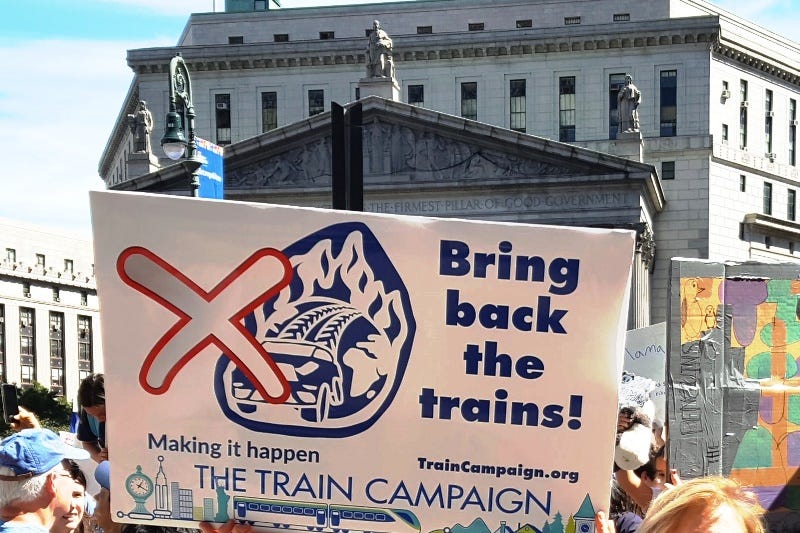
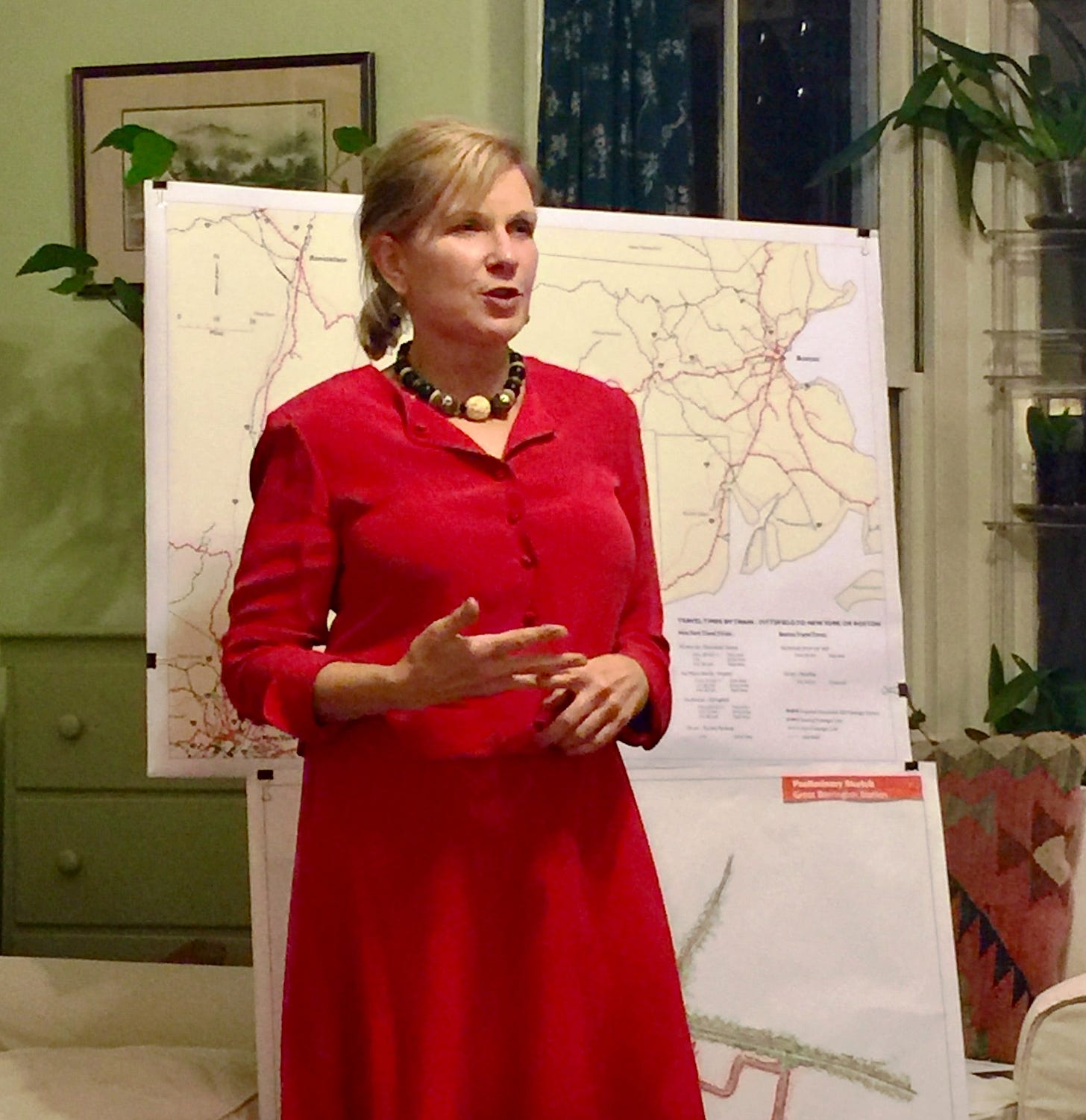
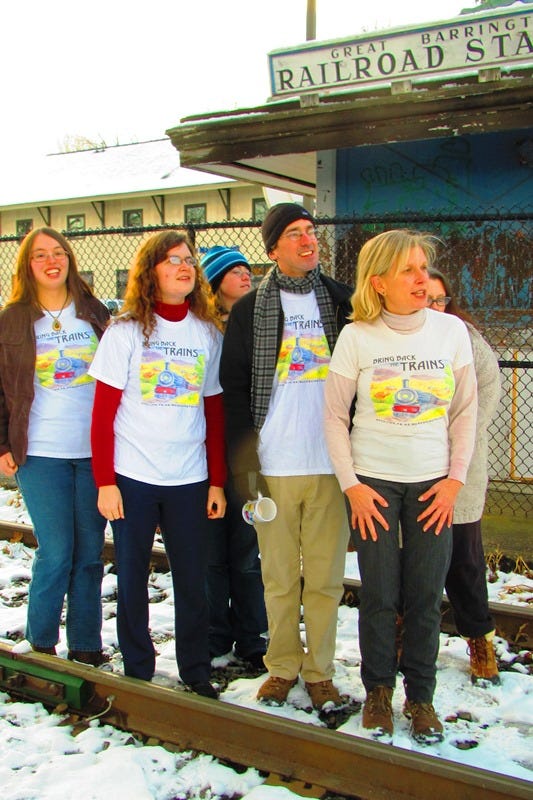
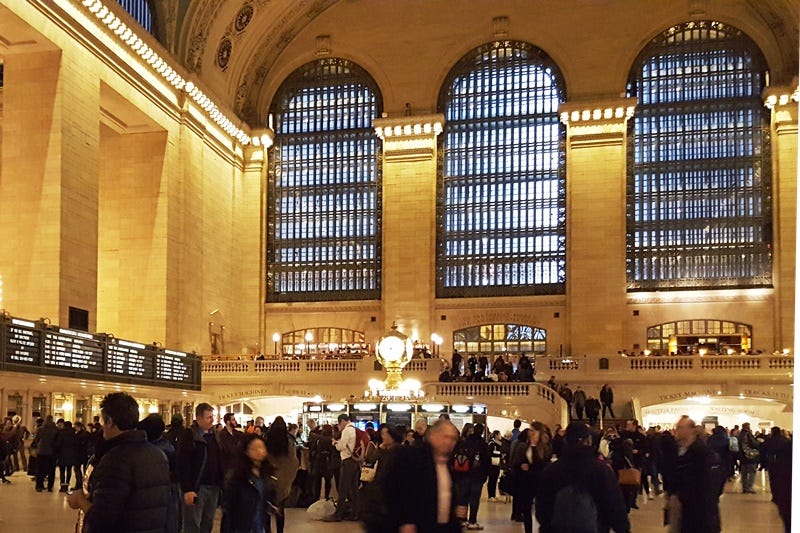
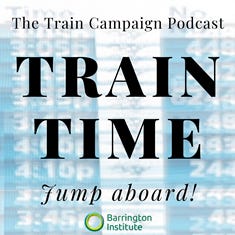

More than 20 years ago, I enjoyed the train trip from Guangzhou to Beijing from the tropical south to the arid north to give a paper with a Chinese colleague at an international conference. More recently my Sweetie and I took a train trip from Denver to Halifax via AMTRAK and Canadian railways with several stops en route. Wonderful experience!
In the land of the Almighty Dollar, for the past several decades U.S. passenger rail has typically been less profitable than freight rail and thus usually requires modest government subsidies to remain financially viable. Almost all economically advanced governments in the world have long understand the multitudinous benefits of passenger rail and have been willing to provide adequate government subsidies. Unfortunately, nearly all right-of-center U.S. politicians, especially Republicans, have long ignored or rejected global norms such as the metric system and reflexively starved U.S. passenger rail subsidies (e.g. Amtrak) in favor of windfall tax breaks and tax loopholes for ultra-millionaires and corporations. About the only silver lining of this irrational and distressing tendency in the federal government is that a relatively young NGO called Rails to Trails has been buying up abandoned rail-line rights-of-way nationwide and converting them to long-distance bicycle trails--the goal is eventually to be able to bicycle coast to coast on such trails. Quite a lot of local city governments--especially in college towns like the one in Montana where I live--have also stepped up and built networks of multi-use bicycle paths that are off limits to noisy, polluting, and often dangerous motor vehicles. Some cities like Portland, OR have maintained their streetcar systems, but the vast majority have been shut down, frequently with active intervention by money-first petroleum and tire corporations (as in downtown Los Angeles). Personally, I first experienced passenger rail as a teenager with a Eurailpass in the early 1970s, and had never felt so mobile. I've also ridden everything from coal-burning steam locomotives (in the early 1980s in China) to high-speed bullet trains throughout East Asia over the past few decades. My overall impression is that except for the northeast corridor of the U.S., passenger rail in the U.S. has remained one of the developed world's most backward and even laughable passenger rail systems--largely due to the U.S.'s campaign finance system of essentially legalized bribery of lawmakers by corporate moneyed interests that simply don't care that the U.S. is a global laughingstock in areas such as passenger rail and failure to join the rest of the globe in adopting the metric system.